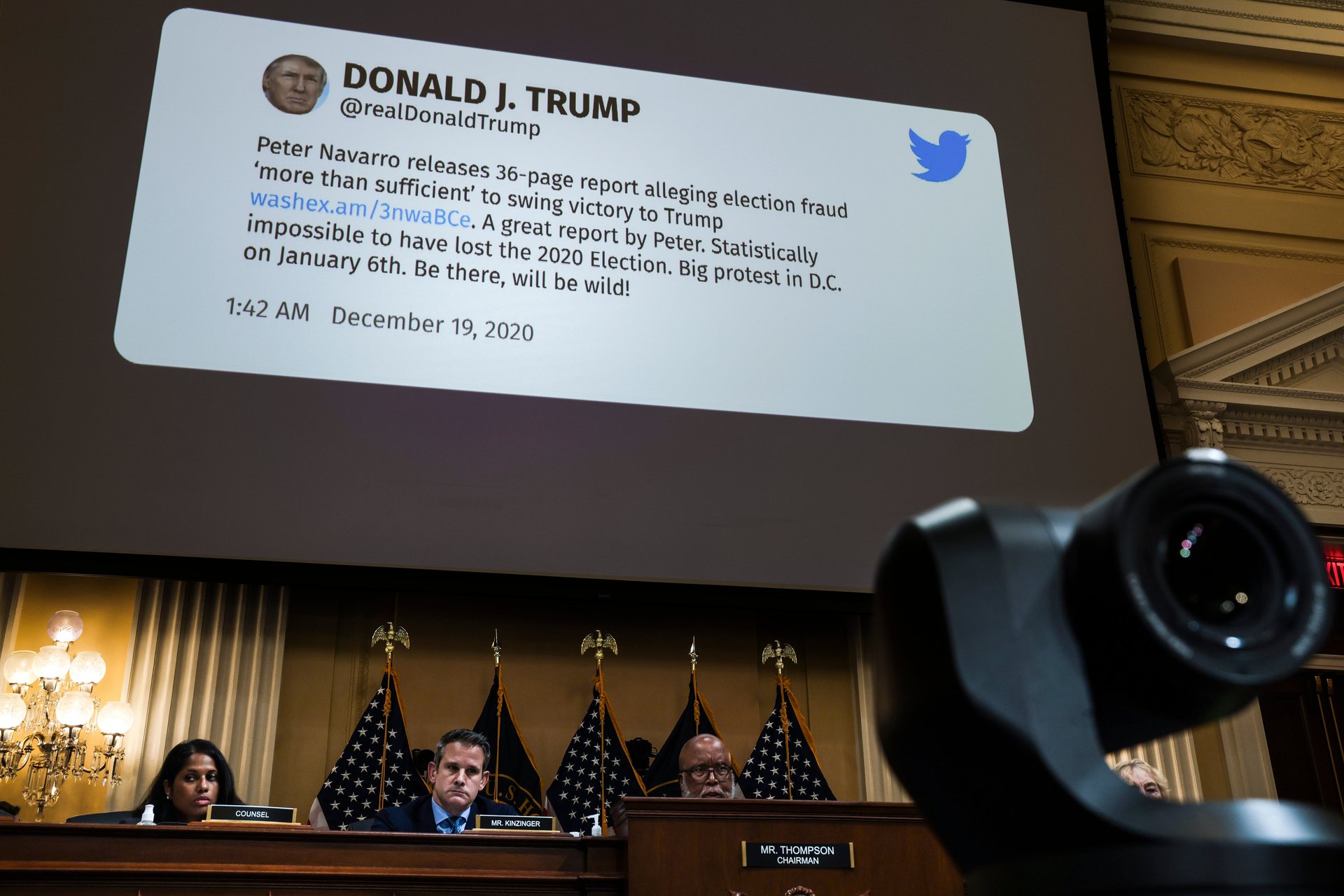Elon Musk's X was fined $350,000 for delaying the handover of data related to Trump’s account
A search warrant was issued as part of the probe into the Jan. 6 insurrection

X, the company formerly known as Twitter, was found in contempt of court after delaying the delivery of information related to the @realDonaldTrump account amid an investigation into former president Donald Trump’s attempts to overturn the 2020 election results. The company was fined $350,000.
Suggested Reading
A search warrant was issued in January as part of US special counsel Jack Smith’s probe into the Jan. 6 attack on the Capitol building, court documents unsealed (pdf) yesterday (Aug. 9) revealed. While X ultimately complied with the warrant, it missed a court-mandated deadline to submit the requested information by three days.
Related Content
The search warrant was originally served with a nondisclosure order, which barred X from making the warrant’s “existence or contents” known. X challenged the order as a violation of the First Amendment and the Stored Communications Act, deferring the handover of Trump’s account records while litigating its claims—which ultimately failed.
A federal district judge said that the dispute of the nondisclosure order was separate from the search warrant, and that further delays in the production of documents would “increase the risk that evidence will be lost or destroyed, heighten the chance the targets will learn of the investigation, and jeopardize the government’s ability to bring any prosecution in a timely fashion,” according to the court record of a February hearing.
The judge, who is not named in the unsealed opinion, found X in contempt of court. The decision has now been upheld by the US Court of Appeals for the District of Columbia Circuit.
Trump’s tweets on X are public, but the company also records private data on user activity that may be of interest to Department of Justice (DOJ) investigators. That includes information on the devices used to access Twitter, the locations from which tweets are sent, drafted tweets, and private messages.
Twitter’s dispute with the Jan. 6 probe investigators, a non-exhaustive timeline
Jan. 17: The DOJ attempts to submit the Trump Twitter account warrant through Twitter’s legal request website, but the site isn’t working.
Jan. 19: The DOJ is able to successfully submit the warrant through the site.
Jan. 25: The DOJ contacts Twitter’s counsel about the warrant, who responds that she “had not heard anything” about it.
Jan. 27: Twitter’s deadline for producing all requested information from the account @realDonaldTrump.
Feb. 1: Twitter fails to produce the requested information, and says it will not comply with the warrant while disputing the nondisclosure order.
Feb. 2: Twitter raises a motion to modify or vacate the nondisclosure order.
Feb. 7: A district court hears from both parties, rejects Twitter’s First Amendment argument, and finds the company in contempt of court. A new deadline of 5pm that day is set for Twitter to produce the requested information in order to purge its contempt. Twitter fails to meet the deadline.
Feb. 10: Three days after the deadline, Twitter submits all information requested in the search warrant .
Mar. 3: A district court rejects Twitter’s motion to modify or vacate the nondisclosure order, and finds the social media giant in civil contempt. Twitter is handed a $350,000 sanction. Twitter files a notice of appeal.
Related stories
🎭 Elon Musk’s cage fight bravado: A weekend tragedy in three acts